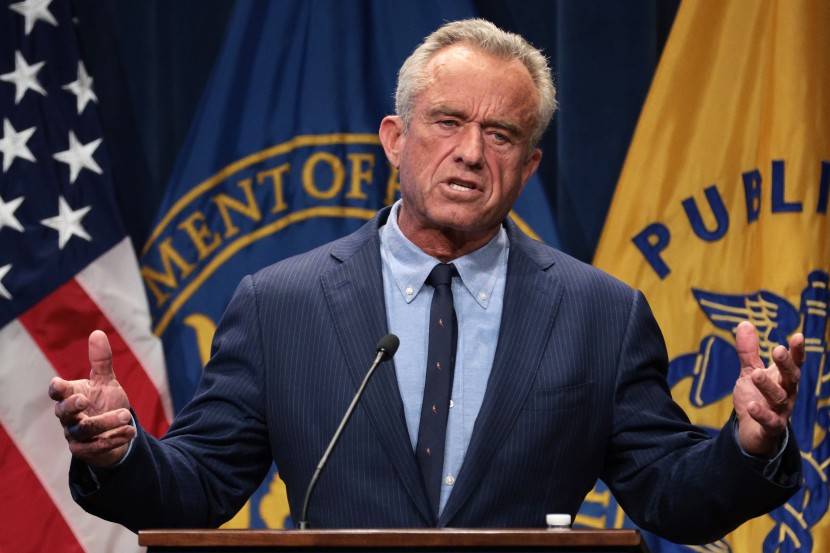
Health and Human Services Secretary Robert F. Kennedy Jr. incited backlash after questioning why autism is "only happening in young people" during a televised news briefing.
On Wednesday, Kennedy delivered a press briefing discussing the Centers for Disease Control and Prevention report that found an increase in autism prevalence. Kennedy has repeatedly suggested a connection between autism spectrum disorder and vaccinations, despite medical research disproving the claim.
RFK JR: It just takes a little common sense. If the epidemic is an artifact, a better diagnostic criteria or better recognition, then why are we not seeing it in older people? Why is this only happening in young people? pic.twitter.com/cnQmcCljL7
— Acyn (@Acyn) April 16, 2025
Kennedy argued that the rise in autism diagnoses cannot be solely attributed to better diagnostic tools or awareness, citing the absence of older adults displaying classic signs of severe autism.
"Have you ever seen anyone...71 years old, with full-blown autism?" Kennedy asked. "Head-banging, nonverbal, non-toilet trained, spinning, toe-walking...these other stereotypical features?"
"Where are these people walking around the mall? You can't find them," he said. "They're not in homes, there are no homes for them, there are no institutions... anybody can look around and see that this is a canard."
His comments were criticized on social media, with many accusing him of being grossly misinformed and dangerously reductive. "My god... he is unfit to lead this agency," wrote one commenter. Another said, "OMG HE CANNOT BE THIS STUPID!"
"I wonder if it might be because more young people get tested than older people?" a reply sarcastically posited. "No, I'm sure all of the old hoarders, train collectors, and people who cover their furniture in plastic are just fine."
Experts and everyday users alike pointed out a range of factors that explain why autism may appear less prevalent in older generations — including drastically different diagnostic standards in the past, systemic neglect, and tragically shorter lifespans among individuals with severe autism.
"Autistic people have greatly reduced life spans," one user explained. "They aspirate, they drown, there are many reasons they don't grow to old age." Others shared personal anecdotes of undiagnosed older relatives who showed signs of autism, noting how late diagnoses were almost nonexistent decades ago.
My teaching career began in 1969. I can look back now and realize that I had autistic students, but there were no diagnostics back then. They would be 68 now, still undiagnosed.
— Suzanne Gerhold 🇨🇦 (@Suzanne47) April 16, 2025
Some users reminded Kennedy that, historically, individuals with profound disabilities were often institutionalized or left without adequate care — a stark contrast to the greater inclusion and support structures available today.
Last week, Kennedy announced, "By September we will know what has caused the autism epidemic and we will be able to eliminate those exposures," and called autism a "preventable disease" on Wednesday. Experts have warned against offering false hope to patients and families, and of the danger in discouraging vaccine completion with misinformation.
The moment has reignited broader concerns about Kennedy's qualifications and judgment just months into heading the US Department of Health and Human Services.
Originally published on Latin Times
© 2025 Latin Times. All rights reserved. Do not reproduce without permission.








